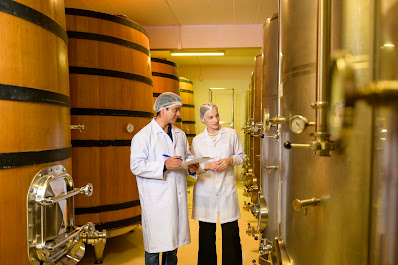Cutting-Edge Enzymes: Transforming Dairy Fermentation
The Science of Dairy Fermentation
Fermentation in dairy products is primarily driven by lactic acid bacteria, which convert lactose into lactic acid, leading to characteristic flavours and textures. However, enzymes play a complementary role in enhancing this process. Key enzymes such as lactases, proteases, and lipases contribute to improved digestion, texture modification, and flavour development in various dairy products.
Lactase: A Solution for Lactose Intolerance
Lactase is one of the most widely used enzymes in dairy processing, particularly for producing lactose-free milk and dairy alternatives. It breaks down lactose into simpler sugars, glucose and galactose, making dairy products more digestible for lactose-intolerant individuals. With increasing demand for lactose-free options, the application of lactase has become indispensable in the dairy industry.
Proteases: Perfecting Texture and Ripening
Proteases, also known as protein-digesting enzymes, play a crucial role in cheese production. These enzymes break down casein, the primary milk protein, leading to curd formation and influencing the texture and maturation of cheese. Rennet, a mixture of proteases, has been traditionally used in cheesemaking, but advances in microbial and plant-based proteases are now providing sustainable and vegetarian-friendly alternatives.
Lipases: Enhancing Flavour Complexity
Lipases contribute to the rich and diverse flavour profiles of aged dairy products. These enzymes break down milk fats into free fatty acids, which develop into complex aroma and taste compounds. This process is essential for the production of high-quality cheeses such as blue cheese, Parmesan, and Roquefort, where specific flavour notes are a defining characteristic.
The Future of Dairy Fermentation with Enzyme Innovation
The continuous advancement of enzyme technology is driving efficiency, sustainability, and innovation in dairy fermentation. Researchers are developing genetically engineered enzymes that function more effectively under specific conditions, improving the consistency and quality of dairy products. Additionally, enzymes derived from microbial and plant-based sources are gaining popularity, supporting the shift towards eco-friendly and vegan-friendly dairy alternatives.
Enzyme-driven fermentation is shaping the future of dairy processing, ensuring that products meet the evolving needs of consumers. From enhancing digestion to perfecting flavours and textures, these cutting-edge enzymes are revolutionising dairy fermentation, making it more accessible, sustainable, and diverse than ever before.




Comments
Post a Comment